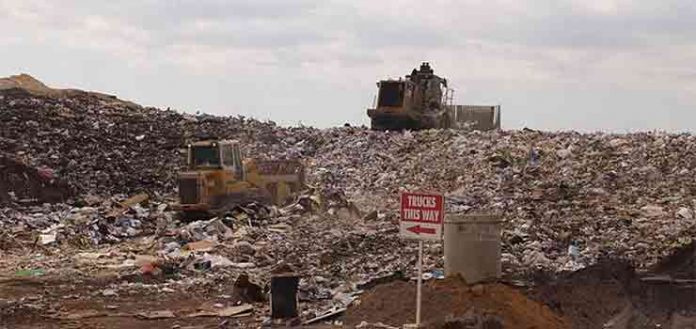
Solid waste as an element of economic sustainability: more for less.
Public policies and solid waste management: how does Spain perform?
On a global level, the planet has less capacity to assimilate the enormous amount of waste generated solids. The United Nations estimates that Every square kilometer of ocean contains an average of 46,000 pieces of plastic. floating.
Every year, 13 million tons of plastic are dumped into the oceans. Global indices show that the higher the technological and industrial level, the greater the production of solid waste. For this reason, the challenge for the National States is to maintain their economic and industrial development, while reducing the generation of waste. From these intentions arise public policies on solid waste management.
The change in public policies on solid waste management
The collection and disposal of waste and solid waste are key factors in ecological balance conservation policies and caring for the environment worldwide. The constant and progressive increase of the population, the patterns of production and consumption are determining factors in the drastic increase observed in the generation of solid waste.
The conception of waste as a resource to incorporate it into the production system is one of the keys to improving this situation and, currently, it is a regulation for the member states of the EU to comply with before 2020. The use and recovery of waste, that is to say the alternative use of waste materials is a co-responsibility commitment of both the environmental authorities, the territorial entities and the community.
Industrially and socioeconomically, the waste collection, treatment, recovery and disposal sector is growing and constitutes one of the recognized sources of green employment and especially recycling.
When waste is properly managed, it can be converted into resources that contribute to saving of raw materials that guarantee economic sustainabilitywith a positive effect on the conservation of natural resources and ecosystems.
All this must respond to the demands of society, which perceives the generation of waste as one of the greatest environmental concerns and as an individual and collective responsibility.
Waste management in Spain
Waste collection in Spain in 2014 was around 21.3 million tons, showing a downward trend compared to previous years. According to their origin by productive and social sector, industry and mining were the two sectors that generated the largest volume of solid wastefollowed by those generated in households and the tertiary and industrial service sectors.
The risk of desertification of the Spanish territory between now and 2100 reaches 80%. The birth of companies dedicated to the waste recovery branch is encouraging, such as the company Servicios Medioambientales de Valencia (SMV), for example, deals with transforming waste material into raw materials that will have a useful purpose, as well as the purchase and sale of classified by-products.
Spain is in the crosshairs of environmental conservation organizations. The 2030 Agenda for Sustainable Development declares the determination of the majority of the world’s countries to “ensure lasting protection of the planet and its natural resources”.
In this sense, in order to achieve sustainable development, the protection of the environment should be an integral part of the development process and cannot be considered in isolation. States shall cooperate “in a spirit of global solidarity” in order to conserve, protect and restore the health and integrity of the Earth’s ecosystem.
The Sustainable Development Goals (SDGs) constitute 17 goals signed by more than 200 countries, including Spain. Even so, Spain has performed poorly in assessments consecutive referred to the conservation of the environment, particularly in objective 12, the reference to Production and Sustainable Consumption.
the cabal compliance with the commitments that safeguard and protect the environment it is increasingly pressing, as it is emerging as the way to make use of the renewable natural resources that are available to the living beings that inhabit the planet.
The proper transport of waste
In order to maintain the environmental balance and contribute to the development of countries, it is essential to proper management and transportation of solid waste from urban centers to processing plants. Companies such as the SMV collaborate in the transport of solid waste allowing its processing to be beneficial for the environment. For this process, companies and municipalities must follow certain basic regulations:
- Take care that the transport fleet is in good conditionin order to avoid major sources of contamination.
- Promote the recycling of solid waste in the population and the classification of these at home, to facilitate the work and reduce the amount of waste.
- separate appropriately solid waste at the processing plant.
- Reuse and recondition solid waste that can be used again in industry as raw materials.
- Take care that the processing plant has an adequate disposal systemwhich does not contaminate water sources or land.
What role does DIY and crafts play?
DIY, crafts and, in short, DIY, also known as the “do it yourself” phenomenon, plays an important role today, thanks to the growing awareness of society at an individual level.
This “philosophy of life” is capable of giving a second chance to materials whose only destination was, a priori, the landfill.
In addition, totally useful and functional objects are obtained and, sometimes, even true works of art.
In our Creative Recycling section you can find a lot of ideas and tutorials. However, as an example, here are four examples of creative recycling carried out with different solid waste:
|
Lamp made by recycling CDs . |
Cat feeder with recycled plastic bottles . |
Key organizer made by recycling computer components |
Flower pot made with recycled tires . |
Caring for the environment, everyone’s responsibility
The efficiency in the collection and disposal of waste is a means to prevent its negative impacts on ecosystems, biodiversity and human health. so we can avoid diseases resulting from the accumulation and poor treatment of wastereduce the level of contamination of both the air and the soil and water, or promote the reduction of the global warming process.
The adequate transportation and treatment of the solid waste that we already produce is a key step in the production chain of recycling and renewal of waste. Do not forget!



